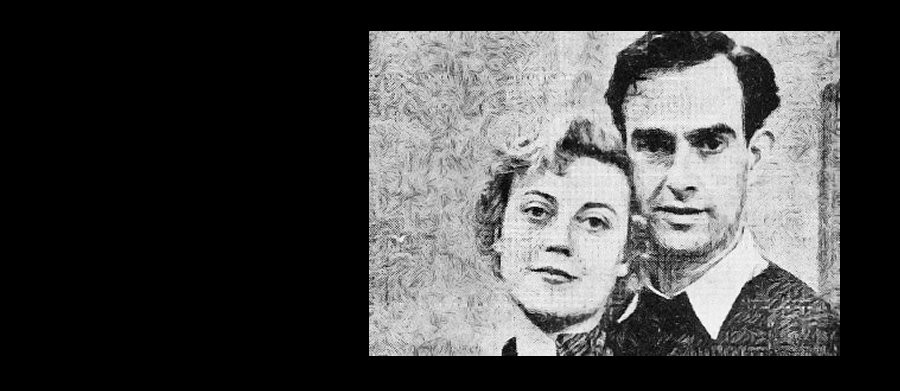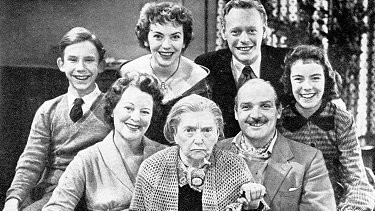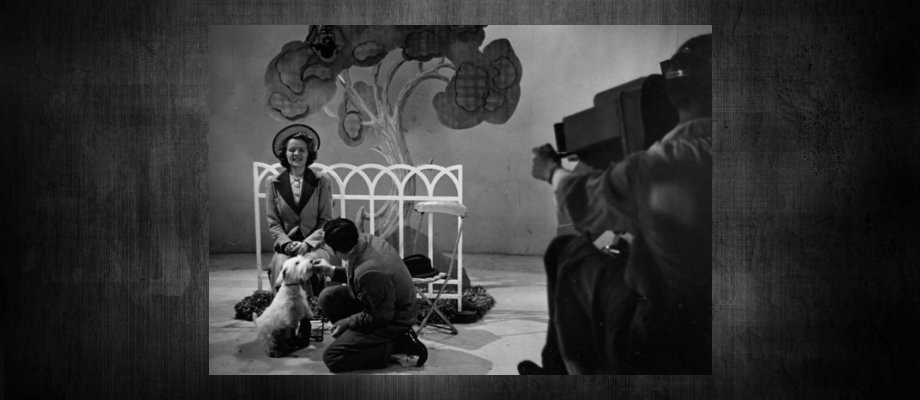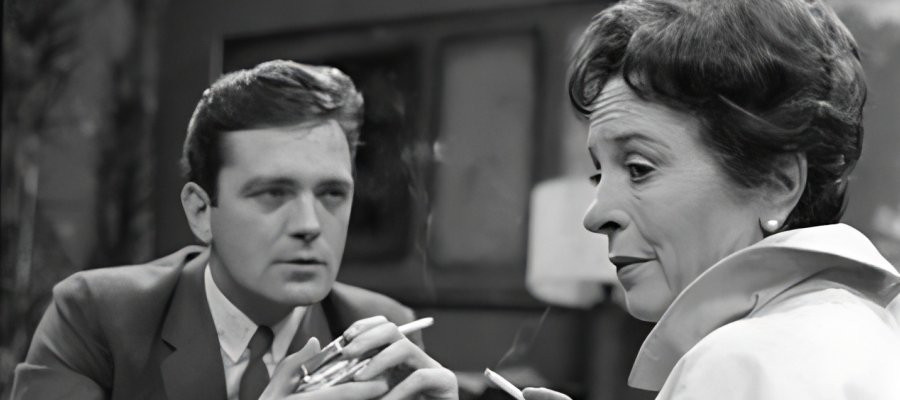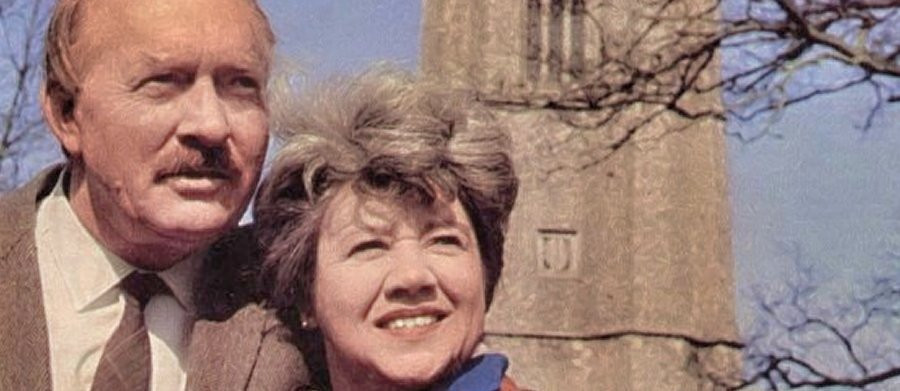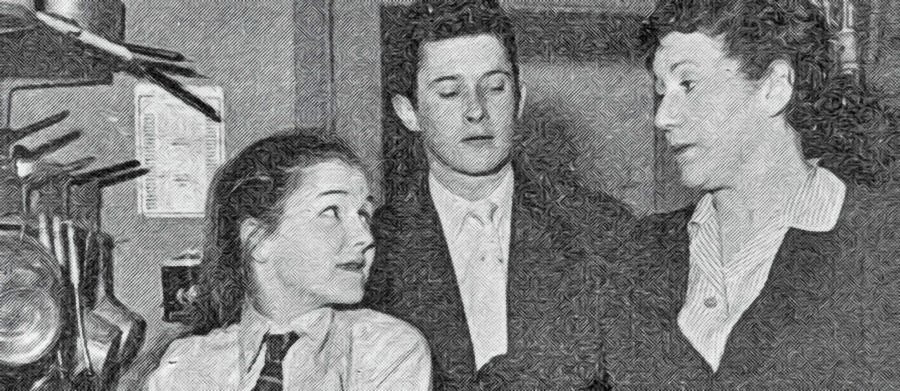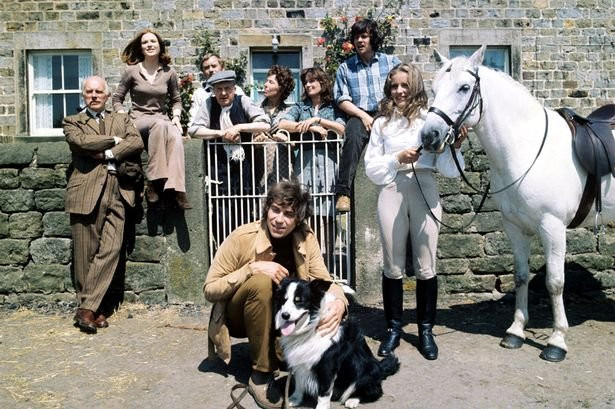
Down on the Farm: Emmerdale's Early Days
"Created by Kevin Laffan in 1972 as an afternoon schedule filler for Yorkshire Television - it soon outgrew its humble afternoon scheduling."
Nowadays, an episode of Emmerdale is not complete without a high speed car chase through the village but in the older, more stately version of the show, excitement was generated by wondering if Sam Pearson would ever smile or which character would be next to leave the farm and then come back played by a completely different actor.
Emmerdale Farm, as it was originally called, was created by Kevin Laffan in 1972 as an afternoon schedule filler for Yorkshire Television (what a great logo and intro music YTV had). Taking its inspiration from the barely-remembered Irish farming soap The Riordans it soon outgrew its humble afternoon scheduling and, as far as the Tyne Tees region was concerned, it switched to the 7pm slot on Tuesdays and Thursdays sometime in the late 1970s.
Emmerdale Farm was a favourite of mine for many reasons, the chief ones being that it had a great theme tune by Tony Hatch, it had believable characters, nothing much ever happened and, as a lad growing up on Teesside, watching the show a couple of times a week was the only bit of fresh air I got. Well, it was either that or watch Farming Outlook on a Sunday afternoon. And I certainly wasn't watching Farming Outlook on a Sunday or any other afternoon.
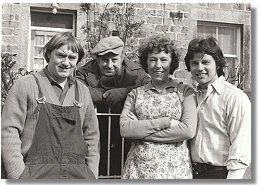
It was set in Beckindale, a village where residents were safe in the knowledge that any wrongdoing would be reported in the Hotten Courier and denounced from the pulpit by Reverend Hinton. The main characters were the Sugden clan, headed by the indomitable mother earth figure of Annie Sugden and her nearest and dearest - her father, miserable old Sam Pearson, her two sons Jack and Joe and daughter Peggy. I'll come clean straight away and say that I don't remember Peggy at all but I do know that she married Matt Skilbeck. Stay tuned, there'll be more about Matt later.
Bickering sons Jack and Joe spent most of their time together squabbling over bags of potatoes which usually led to Jack ridding himself of his frustrations by writing poems, probably about more potatoes, and then throwing them in the fire in artistic anger. It was a simpler time, a fruit and veg man's dream in which all was safely gathered in. The only vegetable the current residents are interested in is the pink parsnip and we all know the trouble that leads to.
Sam Pearson, played by the wonderfully named Toke Townley, didn't seem to do much other than sit at the table in Annie's farmhouse kitchen. As already indicated, he was far from being a cheery soul and he was put out of his misery in 1984 when he died in his sleep, presumably while having a miserable dream about the pumpkin he had won in the village show the night before.

Sam's daughter Annie Sugden was skilfully played by Sheila Mercier. Her back story was that she was married to Jacob, a drunken wastrel, and was left widowed by the time the series started. Inspector Google's enquiries reveal that her husband's funeral was the main event of the very first episode (Inspector Google also brought me the shocking news that Bob Ross, the whispering host of The Joy of Painting has been dead since 1995. Sometimes the Inspector is just too damn thorough in his investigations). In later life, Annie would marry Leonard Kempinski and decamp to Spain. On Leonard's death, she returned to the Farm and accepted a proposal of marriage from Amos Brearly who, with Henry Wilks, was the landlord at the Woolpack Inn. Amos had a stern, forbidding appearance and with his mutton chop sideboards he resembled a nineteenth century factory owner, standing at the bar and gazing in temperate disapproval while his flock filled his pockets by guzzling down the Ephraim Monk. One of the regulars on whom Amos would look disapprovingly was Walter. Portrayed, if that's the word, by Al Dixon, Walter took everything in without saying much in return. You knew that Walter knew the score about most things in Beckindale, and you knew that he knew that you knew just by looking at his eyes. Other regulars said that Walter was a mute who contributed nothing to the conversation in the Woolpack. This is unfair. Walter spoke as much as the next man, provided that he was standing next to Marcel Marceau.
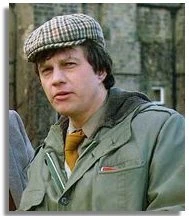
Joe Sugden was the edgier of Annie's two sons. He was played with a youthful relish by Frazer Hines for whom a job in trousers probably came as a relief after a period of intensive kilt wearing as Jamie, the faux-Scottish sidekick of Dr Who as represented by Patrick Troughton. Joe wasn't one to let the grass grow under his feet. The viewer knew he loved danger because he wore olive wellies while everyone else wore black ones. He had big ideas for the farm, culminating in the development of NY Estates. I was never sure what NY Estates was but I suspect it was just part of Joe's imagination, thought up and embellished over a few pints in the Woolpack, egged on by landlords Brearly and Wilks. Joe was always looking for happiness and this is not a bad ambition to have. He had various on and off affairs in pursuit of this elusive happiness including one with a vicar's daughter, at least one of brother Jack's cast-offs and one of his mother Annie's knitting circle, until finding contentment of sorts with divorcee Kate Hughes. This affair got off to a sticky start after Joe shot her for trespassing on his land. He only winged her in the arm and leg, though, and Kate was won over by Joe gallantly taking her to Hotten A&E in his Range Rover, after ensuring that she kept her injured arm and leg out of the window as he'd just bought the car and didn't want blood on the seats. After many months of physiotherapy, their relationship developed into love and eventually marriage. Kate had twin offspring, Rachel and Mark, neither of whom were destined for longevity, as we shall see later.
Jack, Joe's more poetic and sensitive sibling, had left the farm as actor Andrew Burt to write books and find himself but, ironically enough, returned to his roots a few years later as someone else, in the shape of the admirable Clive Hornby. He was the secret father of Pat Merrick's son, Jackie. Jackie was one of my favourite characters. He spent most of his time being uncommunicative and sullen until uncle Joe took pity on him and gave him a job with the possibly fictional NY Estates. He married the lovely Kathy Bates before meeting an untimely end by accidentally shooting himself with a shotgun while he was getting out of his Land Rover, leaving a distraught Kathy to pick up the pieces. Not literally, of course, as that would have been unacceptable for pre-watershed viewing. Jack Sugden eventually married Pat with whom he had another son, the ungrateful Robert who was played, to my knowledge, by at least two actors, sometimes at the same time. Jack and Pat also, unwisely, took on and eventually adopted Andy Hopwood. He was trouble from the start, that one. And you should see him now. He would take some knocking off the ball. Pat died in a car crash when Robert was small, leaving Jack to find solace in the arms of Sarah Connolly who, not all that strangely, was also played by two actresses. Sarah was a mobile librarian and, being a bookish person herself, probably fell for Jack because of his penchant for writing verse. If there's one thing I've learned about women, though, it's that there are only so many times they can listen to poems that rhyme tractor with factor and top field with crop yield so it wasn't long before Sarah was off down the road as fast as her mobile library could take her which, mindful of the books on board, would probably be about 20 mph.
Jack was a dreamer but he wasn't what you would call exciting. His biggest dilemma was usually trying to decide what jumper to wear but, for a brief period, he conducted a clandestine spring and autumn affair with Rachel Hughes, a friend of Sarah's and, as step-daughter to Jack's brother Joe by his marriage to Rachel's mother Kate, technically Jack's step-niece. I think Jack had his fling with Rachel partly so that he could infuriate Joe with the knowledge that he was taking advantage of his step-daughter. Jack also gave the impression that, if Joe had left his step-ladder lying around, he would have had an affair with that as well.
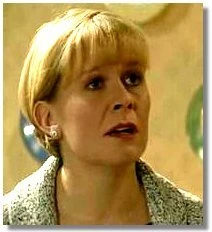
In truth, the liaison between Jack and Rachel was a strange one. Rachel wasn't much given to reading so it can't have been Jack's writing skills that attracted her, unless Jack had diversified into penning dirty limericks. She was barely out of school before having affairs with at least two married men so it was only a matter of time before she got round to Jack. Their relationship soon fizzled out after Rachel had tried to persuade Jack to wear a nice tank top instead of his tried and trusted V-neck jumper. After this, Rachel went off the rails or, given her track record, stayed on the rails and worked her way through the married men of Beckindale at a fair rate of knots. It was a sad day for the married men of Beckindale when she embarked on an affair too far with a crazed school teacher who had clearly been making notes while watching Alfred Hitchcock’s Vertigo. After a vain attempt to end their relationship while out on a picnic Rachel was pushed off a cliff by her lover. Lying dead at the bottom of a cliff was par for the course for a member of a family with more than its fair share of tragedy. Rachel’s twin brother, Mark, met an equally unfortunate end as he was killed when an aeroplane exploded and crashed over the village. Their mother, Kate Hughes, was of course married to Joe Sugden which is tragedy enough for any family I would have thought.
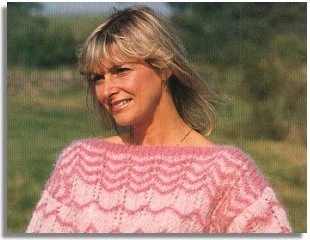
Lovely, moon-faced Matt Skilbeck was the unofficial third son of Annie Sugden. The widower of Peggy Sugden, he had the distinction of being even less exciting than Jack but this didn't stop him pulling and eventually marrying Dolly, the comely barmaid from the Woolpack. In the great tradition of the Farm, Dolly was played by two actresses. I don't recall the first one at all but the second one, Jean Rogers, was a stunner. And I'm not one who is easily stunned. Matt was punching well above his weight when he married Dolly and I think it had something to do with the fact that she had the unfortunate maiden name of Clothespeg. Desperate for a more sensible surname, she accepted the first offer of marriage that came along. After a lot of trying, Dolly conceived a son, Sam, named after Sam Pearson. Why anyone would want to name a child after such a miserable soul is beyond me. Naturally, as people are wont to do, Matt and Dolly grew apart over the years and I remember quarry owner Harry Mowlem, played with brutish force by the excellent Godfrey James, understandably developing lascivious designs on Dolly. Mowlem's unrequited lust ended unhappily for him when he was found dead in suspicious circumstances shortly afterwards. Matt was suspected for a while until one of Mowlem's associates did the decent thing and owned up. Matt and Dolly eventually separated and divorced but were re-united some years later and were last heard of somewhere in East Anglia. Matt was a good soul who was sensitively played by Frederick Pyne. I remember being impressed with him a good few years ago when I saw him in the play Noises Off at the Forum Theatre in Billingham. The production contained much to recommend it, including a cast comprising of Olive from On the Buses, Glenda Brownlow from Crossroads and Roy North from the Basil Brush Show and Get It Together. There is a time and place for everything and now is neither the time or the place but I would love to know what became of Roy's Get It Together co-hosts Linda Fletcher and Meg Nicol.
Great television can make the viewer think many things such as what's the meaning of it all, where do we go when we die and my, but I'm glad I don't have to get up at four o'clock in the morning to tend to the lambs in t'top field. Of course, Emmerdale Farm only made the viewer consider the last of these but it was great television nevertheless. I said at the start that nothing much happened on the Farm but I was wrong. Quietly, like the grass that grows, everything happened.
Published on February 21st, 2019. Written by Andrew Coby (2016) for Television Heaven.


